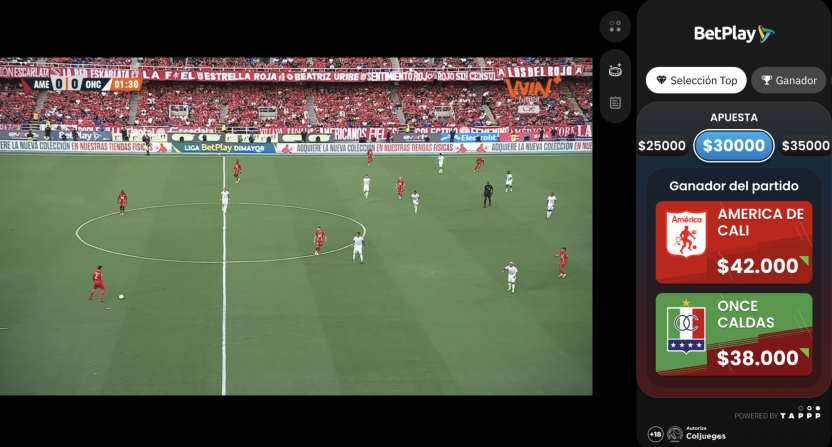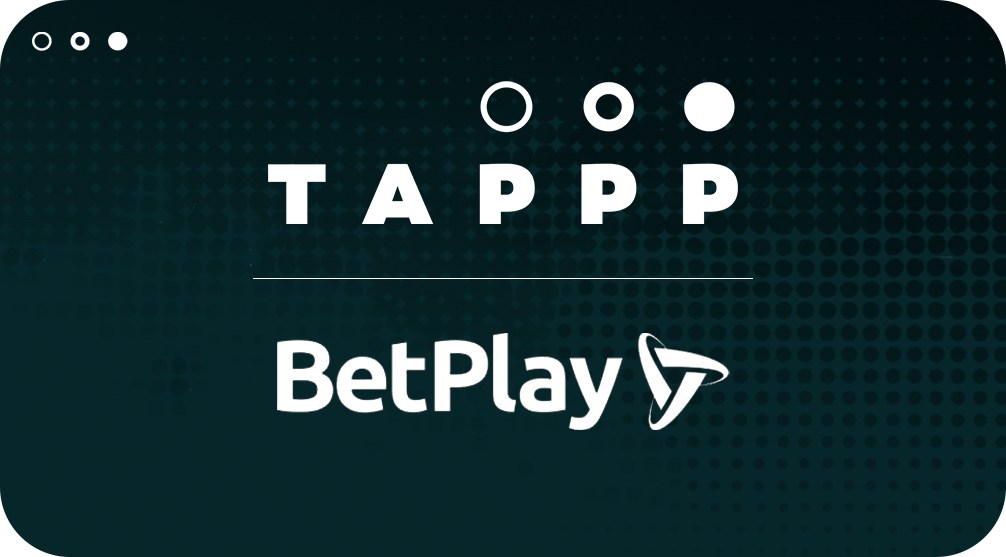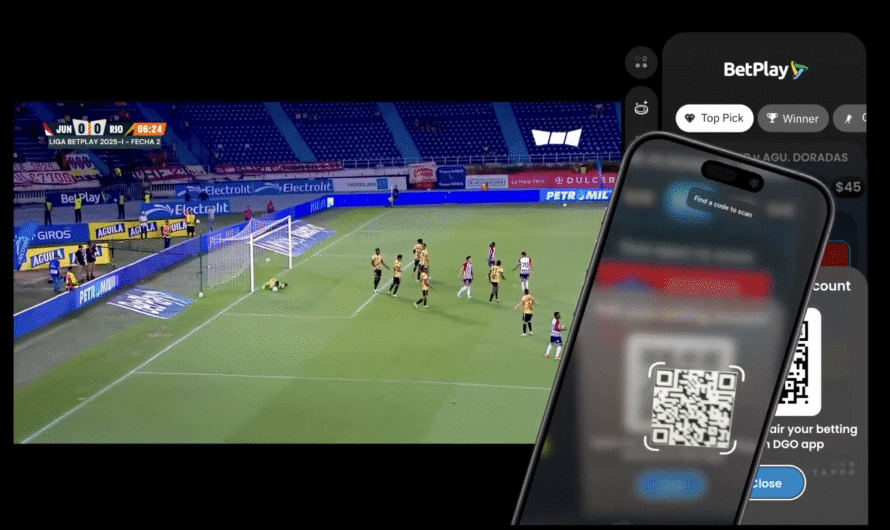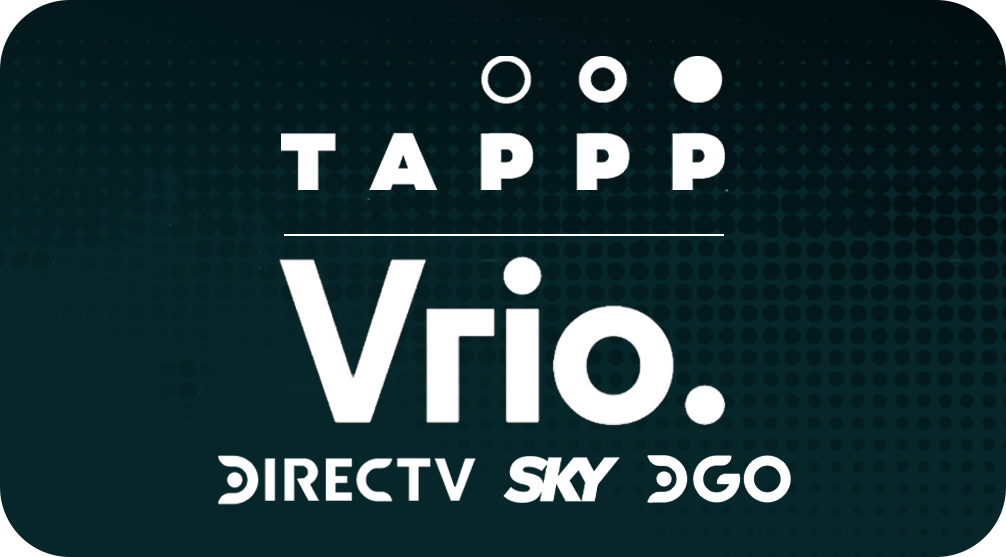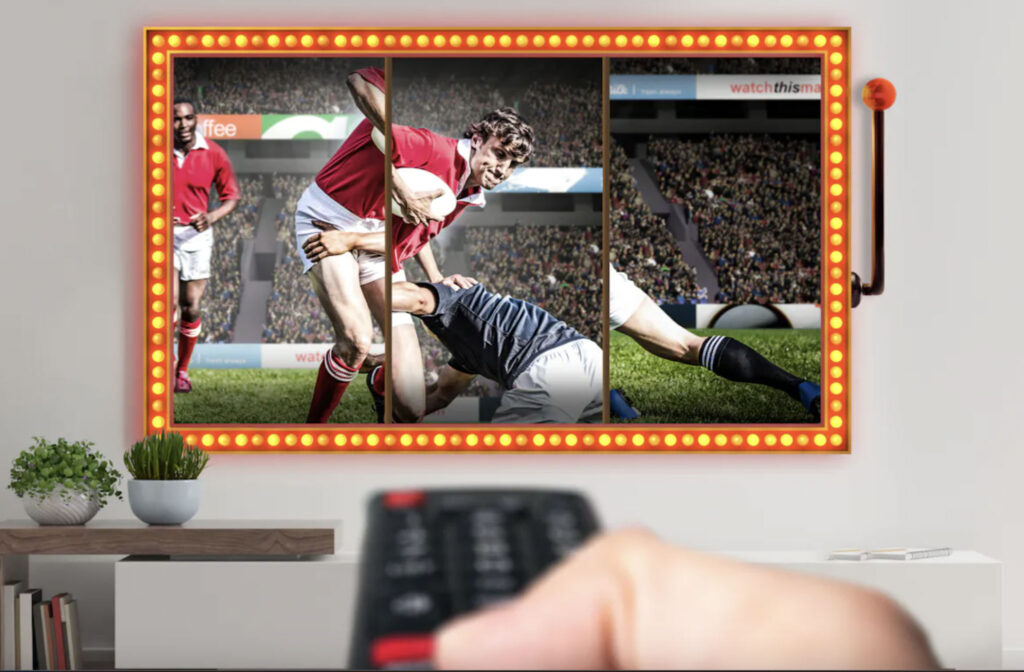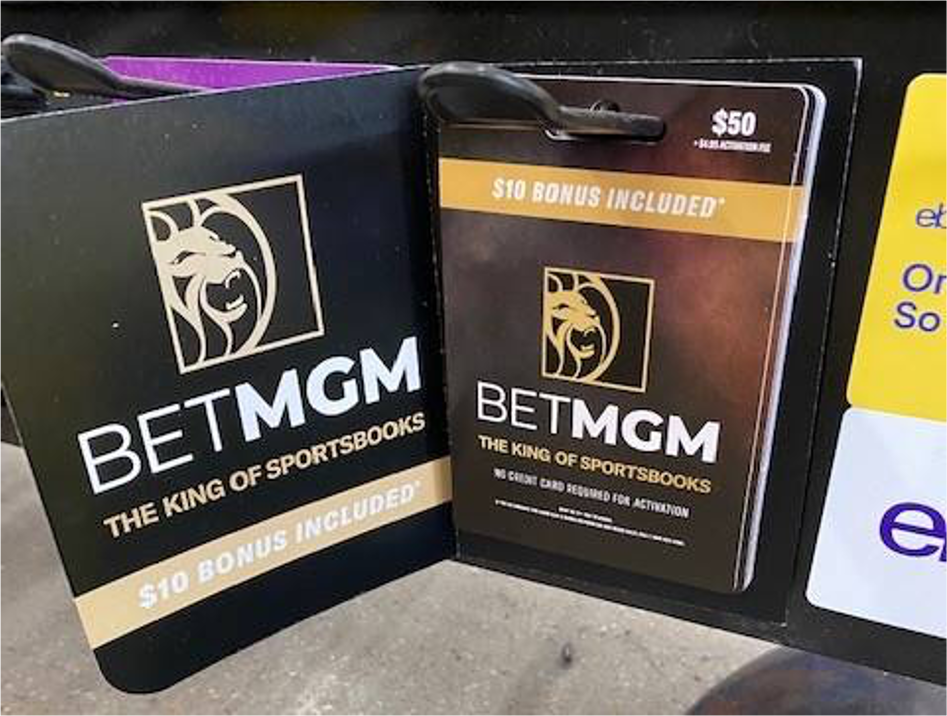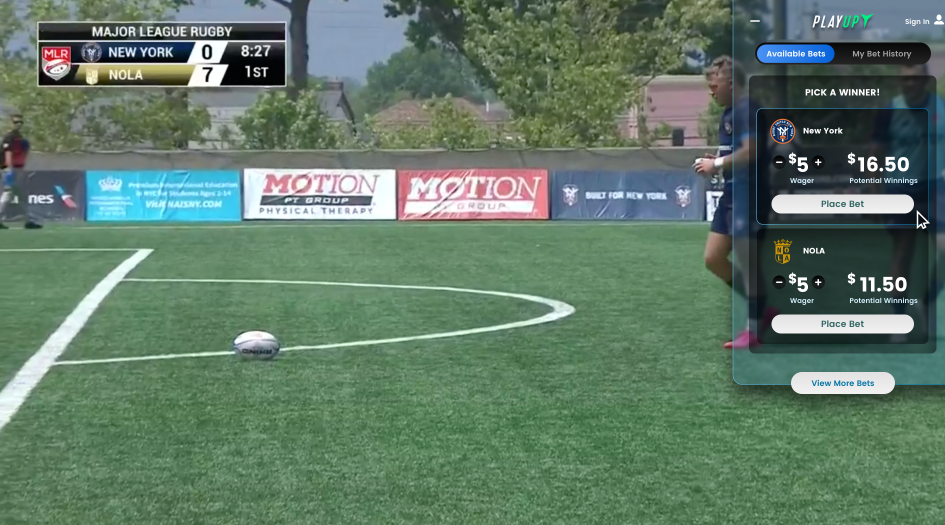Since 2018, when the Supreme Court lifted the ban on sports betting, legal gamblers have had two basic ways of placing a wager in the 39 states and the District of Columbia where wagering is legal: bet in person at a casino or on the sportsbooks’ apps (nine of these states allow only in-person betting).
Betting directly from the TV that’s showing the contest using the remote control or touchscreen has long been a holy grail of sorts in the sports and betting universes. However, it has not occurred for a host of reasons, from technology to the complications of winning approvals from betting regulators, broadcasters, and leagues.
But it is now no longer a fantasy. Tomorrow in Ft. Lauderdale, Fla., at the SBC Summit, a major sports gambling conference, DirecTV, BetPlay, and technology company TAPPP will announce live in-game betting has been up and running since Saturday for DirecTV’s two million customers in Colombia.
Betting prompts from BetPlay, the largest bookmaker in the country, reside next to the game, and bets from DirecTV customers have been coming in for days (to start, betting is only available for the top Colombian soccer league).
“We’ve been dreaming of this for a number of years,” said Paola Echeverri, board member for BetPlay’s largest shareholder.
Sandy Agarwal, founder and CEO of TAPPP, a payments platform that has been developing the sports betting system for over five years, said he expects the technology to reach the U.S. by the fourth quarter.
“Truth be told, everything was built for the U.S. market,” Agarwal said, “one of the reasons we have such a sophisticated system is because it was purpose-built for the U.S.”
But in the U.S. each state has its own gambling regulatory body that must sign off, slowing progress. “In the U.S., very frankly, it became a situation of political will and the complexity of multi-states, right? Whereas in Colombia, there was one regulator, and we had access to Division A, which is like saying NFL.”
Sitting in his New York City office Sunday evening, Agarwal shows off the betting in action on a live DirecTV feed from Colombia. The game takes up most of the screen but a betting window idles on the side. To make the system easier for fans, no odds are used. Instead, bet amounts are listed, and below, the sum of money that would be won is listed for each team. The types of bets are constantly changing, from who will score next to the total number of goals.
“So instead of showing you plus 700, we just made it simple: You bet 1,000 pesos, you’re going to win 7,000 pesos,” Agarwal said.
Customers must first link their bookmaker account to the TV account, with a QR code available. BetPlay, the soccer league’s title sponsor, is one of two bookmakers available for now. But when the technology arrives in the U.S., the plan is for most sports books to be available (DraftKings’ venture fund is an investor in TAPPP).
TAPPP needs approval not just from the regulators but also from the sports leagues and broadcasters, which Agarwal is optimistic will happen here. In Colombia, DirecTV gets a part of the transaction fee, while the sports league benefits from increased fan engagement. The data that TAPPP collects could offer valuable insights into fan behavior.
TAPPP is not content with just gambling. It’s struck a deal with Panini in three South American countries to insert a prompt to purchase the card company’s sticker books into Club World Cup broadcasts later this year. Down the road, Agarwal sees food delivery apps also integrated into the game broadcast.
For now, in Colombia, TAPPP is limiting the types of bets, culling from the hundreds available through BetPlay to a more manageable few dozen. It is also capping the size of bets to the equivalent of $100. Consumers have the option of blocking the betting inserts, and can customize it so gambling is only available to certain family members. Standard pre-game bets are also available.
The closest U.S. model to what TAPPP has accomplished is NBA League Pass, which allows customers to click a link on the game screen that routes to a sportsbook. The difference is that in Colombia, bettors never leave the screen. In the NBA case, the bet is placed outside the TV ecosystem; in TAPPP’s case, it is within the ecosystem.
Echeverri, the board member of BetPlay’s main shareholder, said the new betting platform is part of an effort to gamify the viewing experience. In the few days since live betting has been available, she said, few customers have turned off the betting prompts.
Agarwal is confident his system is coming to America.
Source:
Sports betting could come directly to TVs sooner than you think
